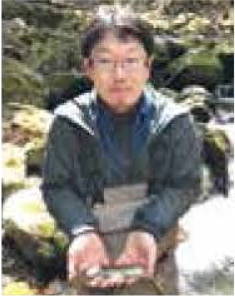Research - A01:Core Research Groups -
Click here for research plans of Selected Research Projects (2018-2019).
A01:Core Research Groups
Mechanism of asymmetric division of plant stem cells
| PI | Gohta Goshima | Graduate School of Science, Nagoya University |  |
| CI | Yutaka Sato | National Institute of Genetics |  |
“Asymmetric division” is extremely important for the generation and maintenance of the stem cell. However, the actual mechanism remains poorly understood in plants. In this research, we aim to elucidate the mechanism by which stem cell are induced and asymmetric division is executed by controlling cell polarity and cytokinesis. In the basal land plant Physcomitrella patens, a total of 8 kinds of stem cells have been identified, and various cell biology experimental tools have been developed. In rice, several mutants defective in the maintenance of polarity information have been obtained. By making full use of these materials, we will carry out cell biological and molecular genetical studies; our particular focus will be the cues that generate the characteristic division pattern of plant stem cells and also the dynamics of the division machinery. We expect to uncover novel mechanisms of stem cell generation and maintenance in land plants.
Initiation of plant stem cells by reprogramming
| PI | Makoto Hayashi | RIKEN Center for Sustainable Resource Science |  |
| CI | Kimitsune Ishizaki | Graduate School of Science, Kobe University |  |
Plants regenerate stem cells from differentiated cells in response to environmental cues. This somatic initiation of stem cells is common and unique to plants, securing proliferation of stem cells in plant bodies. Here we will focus key transcription factors that play pivotal roles in root nodulation in legumes and gemma cup formation in liverworts. Specifically, we want to reveal the gene regulatory networks and spatiotemporal regulation of NIN (root nodulation) and GCAM1 (gemma cup formation), in addition to epigenetic modification that potentially define stem cell-ness in plants. We expect that our research eventually leads to understand how plants regulate stem cell population post-embryonically by cell reprogramming.
Study on role of phytohormones regulating stem cell proliferation
| PI | Hitoshi Sakakibara | Graduate School of Bioagricultural Sciences, Nagoya University |
 |
In shoot apical meristem, division of stem cells is properly controlled, and phytomers including axillary stem cells are regularly produced. On the other hand, stem cells derived from the shoot apex remain in the node at the linkage of phytomer, and the cell division in intercalary meristem is reactivated by an unknown mechanism. These regulations optimize plant growth and development in response to the environmental condition. In this study, we aim to elucidate control system of stem cell proliferation by plant hormones with focusing on biosynthesis and transport system of cytokinin, an important signaling molecule for maintaining cell division activity at shoot apical meristem. We also aim to elucidate mechanism of reactivation of stem cells in intercalary meristem with focusing on a role of plant hormones. This study will clarify a regulation mechanism of stem cell proliferation organizing regularity and plasticity of organogenesis.
Molecular mechanisms for the timing of the production of stem cells in plants
| PI | Shinjiro Yamaguchi | Kyoto University, Institute for Chemical Research |  |
Plants produce stem cells in the axillary bud in a regular timing. The rice plastochron1 (pla1) mutant and the Arabidopsis kluh (klu) mutant have shorter plastochron, and the timing of the production of stem cells in the axillary buds is faster than that of wild type. Studies so far have shown that the PLA1 and KLU genes encode cytochrome P450s that belong to the CYP78A subfamily. The enzymatic function(s) of CYP78As in planta have not been clarified yet. To address this question, we will look for compounds that can complement the mutant phenotype and also carry out comprehensive metabolite profiling using mass spectrometry. This study is expected to reveal a regulatory system that produces stem cells in a regular timing.
